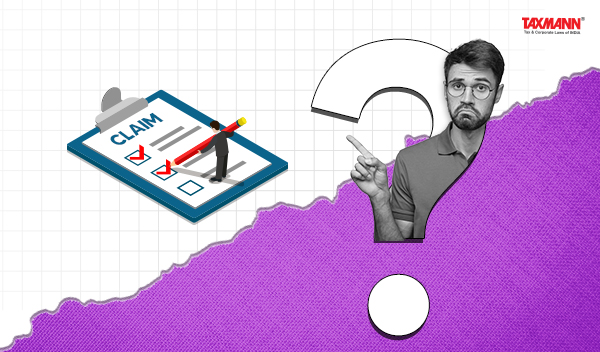Question of Correctness of Claim of Deduction u/s 80JJAA Can’t Represent Escapement of Income | HC
- News|Blog|Income Tax|
- 2 Min Read
- By Taxmann
- |
- Last Updated on 8 May, 2024

Case Details: Hexaware Technologies Ltd. vs. Assistant Commissioner of Income-tax - [2024] 162 taxmann.com 225 (Bombay)
Judiciary and Counsel Details
-
- K.R. Shriram & Dr. Neela Gokhale, JJ.
- J.D. Mistri, Sr. Adv. Madhur Agrawal & Atul K. Jasani for the Petitioner.
- Ms Swapna Gokhale, Suresh Kumar, Akhileshwar Sharma, Ms Samiksha Kanani & Ms Dhanalaxmi Iyer for the Respondent.
Facts of the Case
Assessee was engaged in information technology consulting, software development and business process services. For the relevant assessment year, a return of income was filed, claiming deduction under section 80JJAA of the Act. Such deduction was claimed after furnishing relevant forms and audit reports.
During the assessment proceedings, the assessment order was passed under Section 143(3), accepting the return of income filed by the petitioner. Subsequently, the Assessing Officer (AO) issued a notice under section 148 contending that the deduction under section 80JJAA was not available to the assessee as it was not deriving any profit from the manufacturing of goods in the factory.
Considering the deduction claim under section 80JJAA as information suggesting that income escaped assessment, AO passed the order under section 148A(d) and notice under section 148 of the Act.
Aggrieved by such notice, assessee filed writ petition before the Bombay High Court.
High Court Held
The High Court held that the issue raised in the impugned initial notice and the impugned order pertain to the correct claim of deduction/allowances or the expenditure incurred. There was also no allegation regarding income escaping tax on account of any undisclosed asset. The claim of deduction under Section 80JJAA or an issue of the correctness of the claim of deduction under Chapter VI of the Act cannot be covered by Section 149(1)(b).
Section 149(1)(b) prescribes that escaped income must be represented in the form of (i) an asset, (ii) expenditure in respect of a transaction or in relation to an event, or (iii) an entry in the books of account.
The question of the correctness of the claim of deduction under Section 80JJAA cannot represent the escapement of income in the form of an asset. The term ‘asset’ is defined in Explanation to Section 149 to include the immovable property being land or building or both, shares and securities, loans and advances, and deposits in bank account.
The alleged claim of disallowance of deduction also can never fall under the specified category as it was neither a case of expenditure in relation to an event nor a case of an entry in the books of account, as no entries were passed in the books of account for claiming a deduction.
Furthermore, it was clarified there cannot be a reopening based on a change of opinion. The assessee claimed a deduction under Section 80JJAA in the return of income along with the tax audit report. AO also passed the assessment order allowing the claim of deduction under Section 80JJAA. Such claim was allowed by AO in the earlier years. Thus, the present reopening was clearly a case of change of opinion; hence, the reassessment was invalid and bad in law.
Disclaimer: The content/information published on the website is only for general information of the user and shall not be construed as legal advice. While the Taxmann has exercised reasonable efforts to ensure the veracity of information/content published, Taxmann shall be under no liability in any manner whatsoever for incorrect information, if any.

Taxmann Publications has a dedicated in-house Research & Editorial Team. This team consists of a team of Chartered Accountants, Company Secretaries, and Lawyers. This team works under the guidance and supervision of editor-in-chief Mr Rakesh Bhargava.
The Research and Editorial Team is responsible for developing reliable and accurate content for the readers. The team follows the six-sigma approach to achieve the benchmark of zero error in its publications and research platforms. The team ensures that the following publication guidelines are thoroughly followed while developing the content:
- The statutory material is obtained only from the authorized and reliable sources
- All the latest developments in the judicial and legislative fields are covered
- Prepare the analytical write-ups on current, controversial, and important issues to help the readers to understand the concept and its implications
- Every content published by Taxmann is complete, accurate and lucid
- All evidence-based statements are supported with proper reference to Section, Circular No., Notification No. or citations
- The golden rules of grammar, style and consistency are thoroughly followed
- Font and size that’s easy to read and remain consistent across all imprint and digital publications are applied



 CA | CS | CMA
CA | CS | CMA
